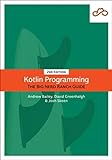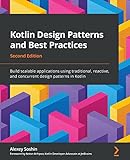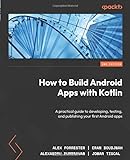In Kotlin, you can mock a function without using a class by utilizing the mockk library. Mockk is a flexible mocking library that allows you to easily create mock objects and specify their behavior.
To mock a function without a class, you can simply use the mockkStatic function provided by the library. This function allows you to mock static functions or top-level functions in Kotlin. Here's an example of how you can mock a top-level function in Kotlin using mockk:
1 2 3 4 5 6 7 8 9 10 11 |
// Assume you have a top-level function like this fun someFunction(): String { return "Hello, World!" } // In your test code, you can mock the function like this mockkStatic("your.package.name.FileWithTopLevelFunctionKt") every { someFunction() } returns "Mocked result" // Now you can use the mocked function in your test println(someFunction()) // This will print "Mocked result" instead of "Hello, World!" |
By using the mockkStatic function and specifying the fully qualified name of the file containing the top-level function, you can easily mock the function's behavior in your test code. This allows you to test your code without needing to create a class just for the purpose of mocking functions.
What are some best practices for mocking functions in Kotlin without involving a class?
- Use lambdas: Instead of creating a class with a function, you can define a lambda function and pass it as a parameter to the function you want to test.
- Use inline functions: Inline functions in Kotlin can improve performance and allow for more concise code when mocking functions.
- Use top-level functions: Define the function you want to mock as a top-level function, so it can be easily mocked and tested without the need for a class.
- Use object expressions: You can define an anonymous object that implements a certain interface or extends a certain class, and then pass that object as a parameter to the function you want to test.
- Use Kotlin’s mocking libraries: There are several mocking libraries available for Kotlin, such as MockK and Mockito, that can help you easily mock functions without the need for a class.
What are the benefits of mocking a function in Kotlin without relying on a class structure?
There are several benefits to mocking a function in Kotlin without relying on a class structure:
- Simplified testing: By mocking functions directly without creating a separate class, you can easily isolate the behavior of a specific function and test it without the need for additional setup or boilerplate code.
- Improved readability: Mocking functions without classes can lead to more concise and readable test code, making it easier to understand the purpose and behavior of individual tests.
- Faster test execution: By eliminating the overhead of creating and managing mock classes, tests that mock functions directly can run more quickly and efficiently.
- Flexibility: Without relying on a class structure, you have more flexibility in how you mock functions and can tailor your approach to suit the specific testing scenario more effectively.
- Easier maintenance: Testing functions directly can simplify the maintenance of test code, as there is less complexity to manage and refactor when making changes to test cases.
What are some real-world scenarios where mocking functions in Kotlin without a class is beneficial?
- Unit testing: When testing a function in isolation, mocking dependencies can help isolate the specific behavior being tested without needing to instantiate a class.
- Callback functions: In scenarios where functions are passed as parameters to other functions (e.g. callbacks in asynchronous programming), mocking these functions can simplify testing without the need to create actual implementations.
- Dependency injection: In cases where functions are used as dependencies for other functions or classes, mocking them without a class can be useful for injecting specific behaviors or testing different scenarios.
- Functional programming: Kotlin's support for high-order functions and functional programming features enable easier mocking of functions without the need for a class, allowing for more modular and flexible code design.
- Simplicity and conciseness: Mocking functions without a class can lead to cleaner and more readable code, especially in simpler scenarios where creating a class might be unnecessary overhead.
What resources are available for learning more about mocking functions in Kotlin without a class?
Some resources for learning more about mocking functions in Kotlin without a class include:
- Kotlin documentation: The official Kotlin documentation provides information and examples on how to mock functions in Kotlin without using a class. You can find useful resources and examples here: https://kotlinlang.org/docs/reference/mock-functions.html
- Mockk documentation: Mockk is a popular mocking library for Kotlin that allows you to easily mock functions and classes without a need for a dedicated class. The Mockk documentation provides detailed information on how to use the library for function mocking: https://mockk.io
- Blogs and tutorials: There are several blogs and tutorials available online that provide step-by-step guides and examples on how to mock functions in Kotlin without a class. You can search for articles on this topic to find more in-depth information.
- Online courses: Websites such as Udemy, Coursera, and Pluralsight offer online courses on Kotlin programming that cover advanced topics such as mocking functions. These courses can be a great resource for learning more about mocking functions in Kotlin without a class.
- Stack Overflow: You can also search for questions and answers related to mocking functions in Kotlin on platforms like Stack Overflow. Many developers share their insights and experiences on this topic, which can be helpful for learning new techniques and best practices.
How to mock a function in Kotlin without using a class?
In Kotlin, you can mock a function without using a class by using a combination of higher-order functions and lambda expressions. Here's an example of how you can mock a function without using a class:
1 2 3 4 5 6 7 8 9 10 11 12 13 14 15 16 17 |
fun main() { val originalFunction: (Int) -> Int = { input -> // Define the original function input + 1 } val mockFunction: (Int) -> Int = { input -> // Define the mock function input * 2 } useFunction(originalFunction) // Call the original function useFunction(mockFunction) // Call the mock function } fun useFunction(function: (Int) -> Int) { val result = function(3) println("Result: $result") } |
In this example, we define two functions originalFunction and mockFunction using lambda expressions. The useFunction function takes a function as a parameter and calls it with a specific input value (in this case, 3).
By passing either the originalFunction or mockFunction as an argument to the useFunction function, we can call the respective function and see the output. This way, we can effectively mock a function without using a class in Kotlin.
How to ensure the reliability of your mock function in Kotlin without using a class?
To ensure the reliability of a mock function in Kotlin without using a class, you can use the following techniques:
- Use inline functions: Inline functions in Kotlin will allow the compiler to inline the function calls at compile-time, reducing the overhead of function calls during runtime. This can help improve the reliability of your mock function.
- Avoid side effects: Make sure that your mock function does not have any side effects, such as modifying global variables or changing the state of the system. This will help ensure that the mock function behaves predictably and reliably.
- Use higher-order functions: Higher-order functions in Kotlin allow you to pass functions as arguments to other functions, which can be useful for creating more flexible and reliable mock functions. You can use higher-order functions to define mock behavior dynamically based on the context.
- Use interfaces: If you need to mock a particular behavior of an object, you can define an interface that represents that behavior and create a mock implementation of that interface. This will allow you to mock the behavior without the need for a class.
- Use standard Kotlin libraries: Kotlin provides standard libraries such as Mockito and MockK, which are specifically designed for creating mock objects and functions. These libraries offer convenient and reliable ways to create and use mock functions in Kotlin.
By following these techniques, you can ensure the reliability of your mock function in Kotlin without using a class.









